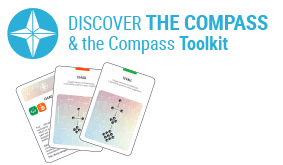The art of asking questions
/This blog has been updating you in the last two years about the most recent participatory learning methodologies that you can use in a learning context. One question always remained a little bit in the background, and that’s the old simple technique of asking a powerful question. Something you need almost always in the application of every facilitation technique whether it’s a panel expert discussion or a world café. To answer on what is the art and the architecture of a powerful question we have collected a series of interesting short publications on the topic? Do you have any other interesting resources to add?
Asking effective questions. (The Asian Development Bank)
The art of asking powerful questions. (From the World Café Methodology)
Different question techniques (Changing minds)







